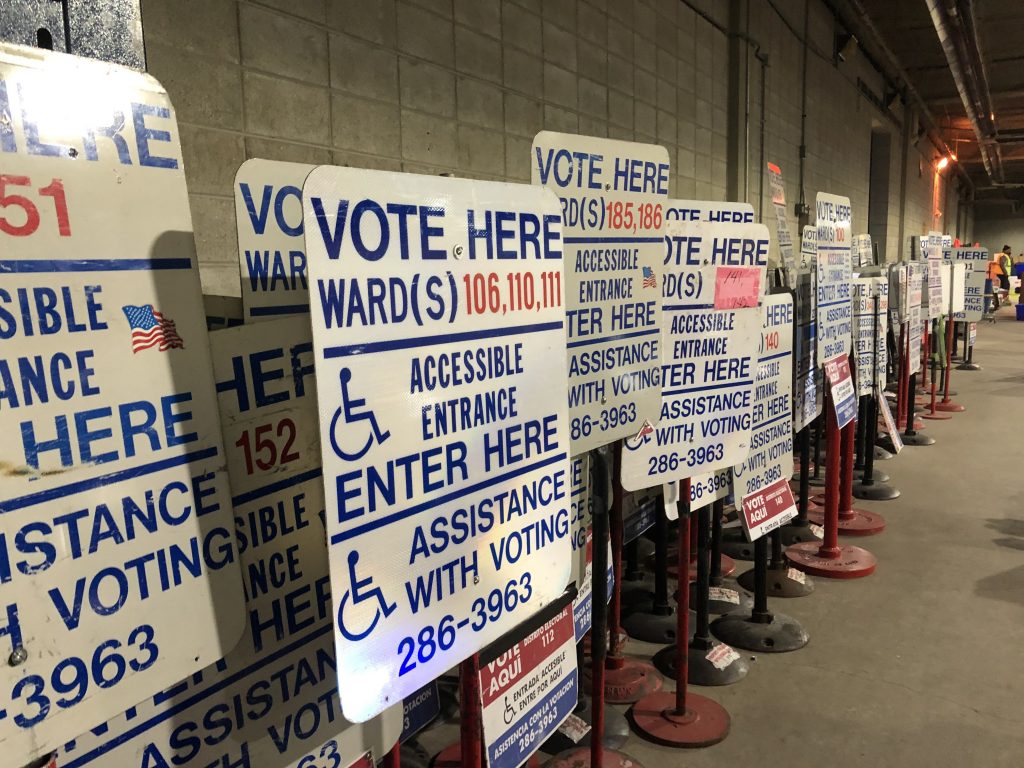State 11th Worst in Disenfranchising Black Felons
One in nine Black adults in Wisconsin can’t vote. Unique parole policies a key reason.
Yesterday’s election was a defining event in American democracy, when the citizens exercise the right to vote. But in Wisconsin about 2% of voters — about one in 50 — could not vote because of a felony conviction. However that figure is far higher for Black adults: about one in nine, or 11%, are felons who are barred from voting in Wisconsin, as the ACLU estimates. That’s 62,342 black felons who are denied suffrage.
Wisconsin ranks 11th worst among the 50 states in disenfranchising black felons, the ACLU notes, which makes it an outlier in the Midwest, more like Mississippi than Michigan. “Wisconsin’s felony disfranchisement laws are more restrictive than four neighboring states. Michigan, Illinois, Indiana and Ohio all automatically restore voting rights upon release from incarceration,” the ACLU notes, while Wisconsin prevents felons from voting until they are off parole and probation.
Finally there are 12 states who are the most punitive, that continue to deny voting rights to some or all of the individuals who have successfully fulfilled their prison, parole, or probation sentences, as a ranking by the Sentencing Project shows.
Yet Wisconsin’s percent of Black adults barred from voting is more like that of the 12 most restrictive states than the 18 that seem to have a similar policy to Wisconsin’s. There are two key reasons for this.
First, a national push to adopt more punitive incarceration policies has had more impact here than in other states. Nationally there has been a stunning 500% increase in the imprisoned population since the 1970s, but in Wisconsin that population has risen even faster, by 677%. And that increase fell hardest on Black people. By 2019 one of every 36 Black people in Wisconsin were incarcerated, another study by the Sentencing Project found, more than double the national rate and considerably higher than Oklahoma and Idaho, which tied for second worst, with one in 42 black people imprisoned. The report found that Blacks comprise 42 percent of the Wisconsin prison population, but just 6 percent of the state’s population. This has caused a huge increase in the population of black felons, who are barred from voting until they are off parole and probation.
In the five years after the facility opened, the report found, total prison admissions increased by 62%. “Nearly two-thirds of that increase was due to increased holds, which after a downtick in 2007 continued to rise, peaking in 2010 at 5,787.”
“Wisconsin has the highest rate of parole supervision among its neighbors,” the report found, a rate that exceeds the national average, “with lengths of stay on parole are estimated at nearly twice (1.7 times) the national average.”
Data compiled by the report shows that Wisconsin went from having an average number of adults on parole supervision in the Midwest, with 210 per 100,000 adults, in 1996, to twice as high as the Midwest average in 2016, with the number of adults in Wisconsin on parole supervision at 450 per 100,000 people.
And this nationally high, extended period of parole supervision means these citizens continue to be barred from exercising their right to vote and contradicts the goal of public safety, as the ACLU notes: “Restricting voting rights does not prevent crime, nor does it provide compensation to victims. In fact, disfranchising persons after release from prison is… harmful to long-term prospects for sustainable reintegration of ex-offenders into society… Research has found a link between voting participation and re-offense; people who voted after release from supervision were half as likely to be re-arrested as those who did not vote.”
“That’s 45,000 individuals in our community paying taxes, working and taking care of their families,” he told the publication Racine County Eye. “But yet, they have no say on who represents them on their children’s school board, who represents the community for which they live and work” and often “pay taxes.”
Dillard speaks from experience, as a felon who was imprisoned. “A year after I was released, I married,” he recalled. “My wife did well as she’s a pharmacist. So she made decent money, and we were able to purchase a home. And, you know, despite all the taxes that were paid, I was in the community for five years before I could vote.”
In 2005, the European Court of Human Rights decided that having a blanket ban on voting from prison violates the right to free and fair elections. In most American states we are greatly constraining democracy by doing this. And Wisconsin, alas, is one of the leaders in this deplorable practice.
Murphy's Law
-
National Media Discovers Mayor Johnson
 Jul 16th, 2024 by Bruce Murphy
Jul 16th, 2024 by Bruce Murphy
-
Milwaukee Arts Groups in Big Trouble
 Jul 10th, 2024 by Bruce Murphy
Jul 10th, 2024 by Bruce Murphy
-
The Plague of Rising Health Care Costs
 Jul 8th, 2024 by Bruce Murphy
Jul 8th, 2024 by Bruce Murphy






















